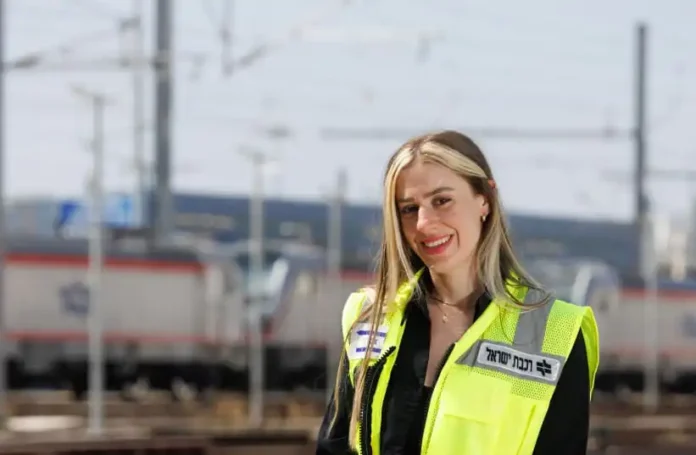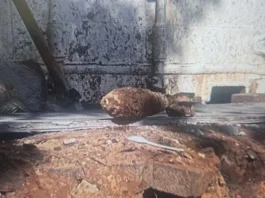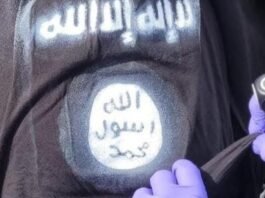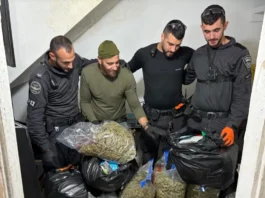
|
Getting your Trinity Audio player ready...
|
LODZ, ISRAEL – In the bustling headquarters of Israel Railways in Lod, Ariella Wolfson is carving a unique path.
As an engineer in the company’s track control department, Wolfson’s work is critical to ensuring that Israel’s rail system, which supports thousands of passengers daily, operates safely and efficiently.
Her role involves overseeing the advanced technologies used to inspect and maintain the railway’s tracks, contributing to the broader technological advancements of Israel’s rail network.
“It’s a responsibility I take very seriously,” says Wolfson. “There’s not one day that it doesn’t cross my mind when I’m working that this needs to be safe. Everything needs to be inspected and checked. No stone can be left unturned when it comes to looking at the rails.”
This personal mission is part of a larger, transformative push within Israel Railways toward a more technologically advanced system.
From the use of artificial intelligence (AI) to detect track defects to implementing electric trains, the company is positioning itself at the forefront of transportation innovation in the country.
The Journey to Israel Railways
A native of the United States, Wolfson worked for three years at Amtrak in New York before making aliyah—her return to Israel as a Jewish immigrant—nine years ago. With a degree in engineering, Wolfson identified railroad engineering as a niche and emerging specialty within the broader engineering field.
“I saw it as an up-and-coming sector,” she recalls. “There’s so much opportunity for growth, and I wanted to be part of something that could have a real impact.”
Since making aliyah, Wolfson has brought her expertise to Israel Railways, where she is responsible for analyzing and maintaining track integrity. Her role involves reviewing data from sophisticated measurement systems that detect, classify, and address track defects across the rail network.
“Our system is designed to inspect every kilometer of track every seven weeks for geometry defects and twice a year for visual rail defects,” she explains. “We use a measurement car equipped with advanced technology to measure any issues.”
Hi-Tech Meets Railway Engineering
The intersection of high technology and railway engineering defines much of Wolfson’s work. The tools at her disposal include programs that automatically detect irregularities in the tracks, which are especially crucial in high-traffic areas like Tel Aviv and Haifa.
“Heavily loaded trains put immense pressure on the tracks, and there are always defects that need correction,” she notes. “We’re continually working to maintain the tracks so that they meet safety standards and remain operational.”
One of the unique challenges Wolfson faces is dealing with the welded sections of track, which are often the points most in need of repair.
Tracks in Israel are imported from France, with each section measuring 18 meters, the maximum length that can fit on a boat. In contrast, countries that manufacture their own tracks, such as the United States, can space welds further apart, reducing the need for frequent maintenance.
Despite these limitations, Wolfson and her team use advanced monitoring systems to ensure that every track section is closely inspected.
“The program we use can detect the smallest irregularities in the metal,” she says. “It’s amazing how much technology has advanced in this field.”
A Pioneering Woman in a Male-Dominated Industry
As one of the few women in Israel Railways’ infrastructure department, Wolfson is aware of her unique position. “I’m the only woman in the track control department, and there are very few women in infrastructure,” she admits. “Most of the women in the company work in departments like finance, safety, and human resources.”
The fact that she’s both a mother and an engineer in such a specialized field often surprises people. “When people find out that I work in railroad engineering, especially as a mother of three boys, they’re often taken aback,” she shares. “They usually say, ‘Wow, I didn’t realize you could do that!’”
Despite the traditional gender roles that dominate engineering, Wolfson believes women bring valuable skills to the table. She emphasizes that the ability to focus on details and connect seemingly unrelated events are crucial in a technical field like hers.
“If something is happening on track number one, it could mean something similar is happening on track number two,” she explains. “Women excel in thinking outside the box and putting puzzle pieces together.”
The Technological Transformation of Israel Railways
Israel Railways is rapidly advancing technologically, and Wolfson is excited about the developments she is helping to bring to life. The company is improving its video and geometry systems, integrating AI technology to enhance track measurements and ensure safety.
“We’re using new AI systems to detect potential issues before they become dangerous,” Wolfson explains. “Everything is becoming more advanced—from how we inspect the rails to the dispatching of trains, the signaling systems, and the introduction of electric trains.”
These upgrades, Wolfson says, are not just about improving safety. They’re also designed to enhance the overall quality of the country’s transportation system, allowing for higher train speeds and more efficient operations.
“In the next fifteen years, Israel Railways will look nothing like it did in the past decade,” she predicts. “It’s going to be a whole different ballgame.”
New Lines, New Challenges
Beyond technological upgrades, Israel Railways is also expanding its network, adding new lines with advanced capabilities. The new Jerusalem line, for instance, is comprised primarily of tunnels and bridges, which pose unique maintenance challenges.
“Maintaining a line like the Jerusalem route requires technology that we’ve never had before in Israel,” Wolfson notes. “We’re using new systems to inspect cables, electricity, and the overall infrastructure.”
One of the most ambitious projects on the horizon is the 431 route, which will connect Tel Aviv and Rishon LeZion to Modi’in and Jerusalem. The entire line will be built on bridges, requiring advanced engineering techniques to ensure the safety and stability of the structure.
“The design of bridges for trains is entirely different from those for cars,” she explains. “We’re dealing with unique challenges, but we have the technology and the team to make it happen.”
The Impact of War and Reserve Duty
While Wolfson is fully immersed in the technical aspects of her job, the realities of living in Israel have hit home, particularly in times of conflict. After the outbreak of war on October 7, many of her colleagues were called to reserve duty, leaving the office quieter than usual.
“There are a lot of young engineers at Israel Railways in their thirties who spent six months in Gaza,” she recalls. “I had to pick up some of the slack, being a woman and a mom who’s not going to war.”
The experience was a culture shock for Wolfson, who had to adapt to new responsibilities while supporting her colleagues. “People came to me with questions and to cover the work of those in reserve duty,” she says. “It was a very different atmosphere.”
A Deep Commitment to Safety
Despite the challenges, Wolfson’s commitment to safety remains her top priority. As the sole person responsible for inspecting the metal rails across the entire system, she understands the gravity of her work.
“It’s meaningful to be the only one doing something that’s directly related to the safety of traveling by train,” she says. “Transportation is a huge part of our country, and to be a part of Israel Railways is a big deal.”
Wolfson’s work not only ensures that Israel’s trains run smoothly, but it also plays a critical role in the daily lives of the country’s residents.
“Soldiers rely on public transportation to get to their bases,” she points out. “One of the biggest parts of someone’s day is how they’re going to get from point A to point B.”
For Wolfson, being part of Israel’s railway system is more than just a job—it’s a way to contribute to the country she now calls home.
“As an American who made aliyah, it’s special to be part of something that’s such a significant part of Israel,” she reflects. “Transportation connects the country, and I’m proud to play a role in making that happen.”


